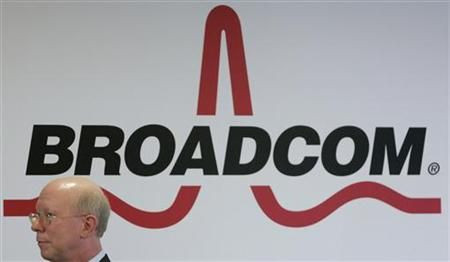Broadcom To Cut 1,150 Jobs Amid Grim Fourth-Quarter Projection As The Chip Maker Struggles To Keep Up With LTE Innovation

Broadcom Corporation (NASDAQ:BRCM) announced that it will eliminate as many as 1,150 jobs to offset costs from slowing demand for its chips that connect tablets and smartphones to the Internet, weighing down its fourth-quarter projection that fell short of analysts’ estimates.
The Irvine, Calif.-based company, which supplies chips to about half of the world’s hand-held device market, however, recorded a 44 percent rise in third-quarter net income to reach $316 million, or 55 cents a share, up from $220 million, or 38 cents a share, in the corresponding period in 2012. Despite the better-than-expected third quarter showing, the company's shares fell as much as 8.1 percent to $27.14 in after-hours trading after the company forecast revenues of about $1.98 billion for the fourth quarter, below analysts’ consensus of $2.13 billion, according to Bloomberg.
Broadcom, a market leader in its segment, has been struggling to roll out a chip that supports LTE, or long-term evolution, for high-speed data transfer for mobile phones, which could cause the company to lose existing customers, Alex Gauna, an analyst at JMP Securities in San Francisco, told Bloomberg.
“Right now they’re losing market share, but it’s not a cliff,” Gauna said. “What’s very clear now is that what the market wants is a road map to LTE.”
A third of the proposed job cuts in the company, which, according to Bloomberg, had a workforce of 11,300 in 2012, is likely to be among employees who became part of the company when it acquired an LTE-related unit of Renesas Electronics Corporation (TYO:6723) in October.
“Broadcom delivered better-than-expected results across the board in the September quarter,” Scott McGregor, Broadcom’s president and CEO, said in a statement. “With the Renesas transaction closed, the combined team is working diligently to deliver LTE revenue in early 2014.”
“Looking forward, we are taking the necessary steps to tightly manage the business while focusing on strategic initiatives, including LTE, data center innovation and driving the next generation of home video with HEVC,” McGregor said.
© Copyright IBTimes 2024. All rights reserved.






















